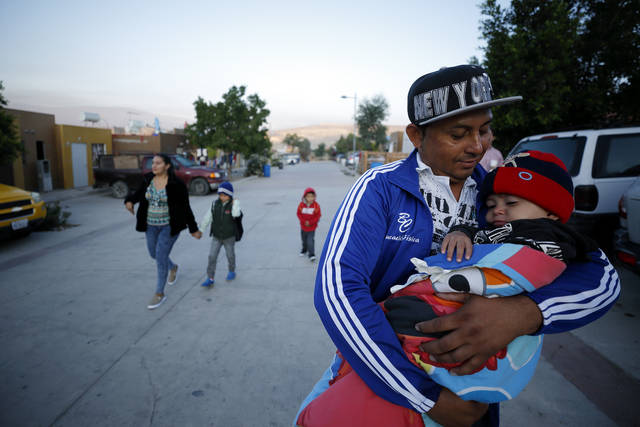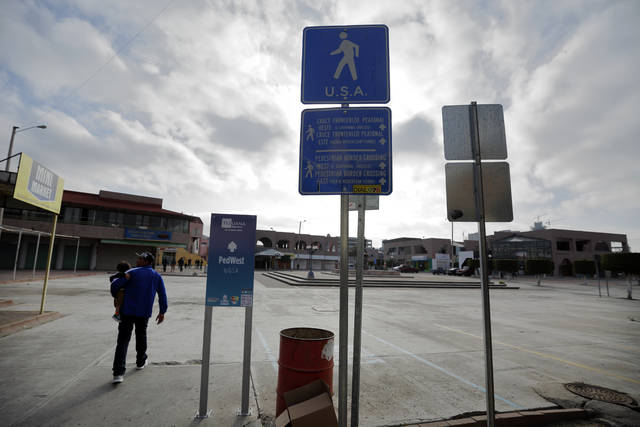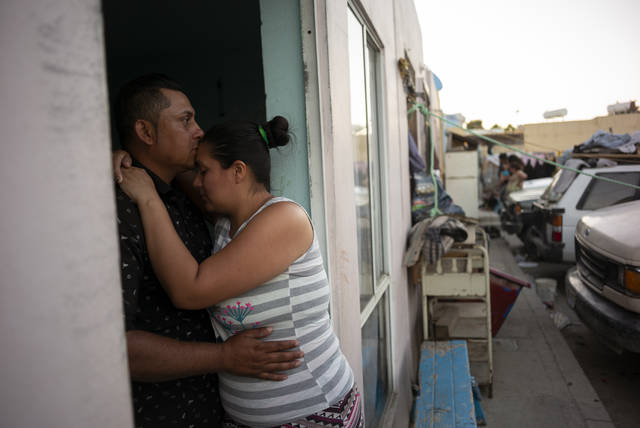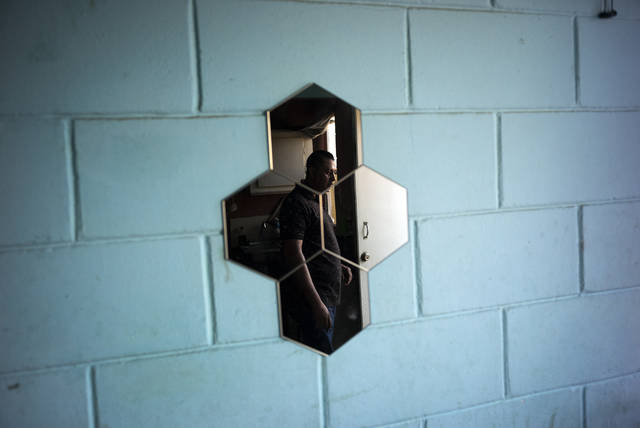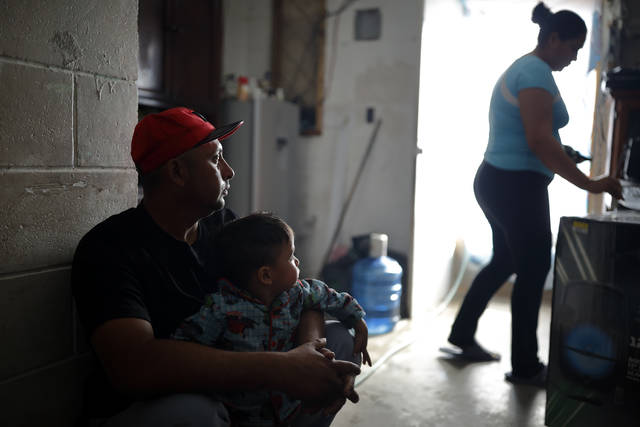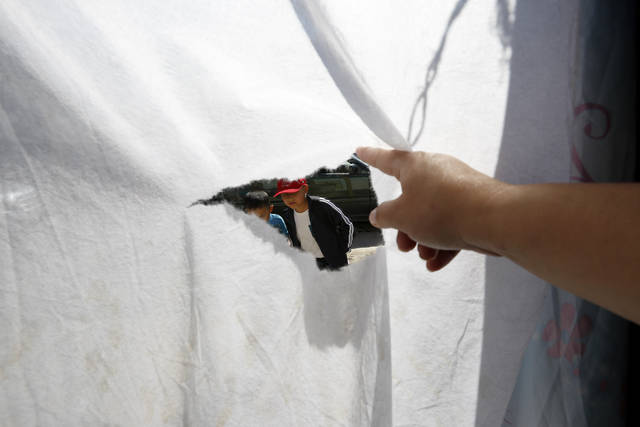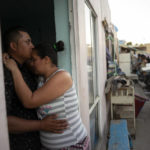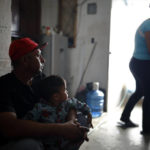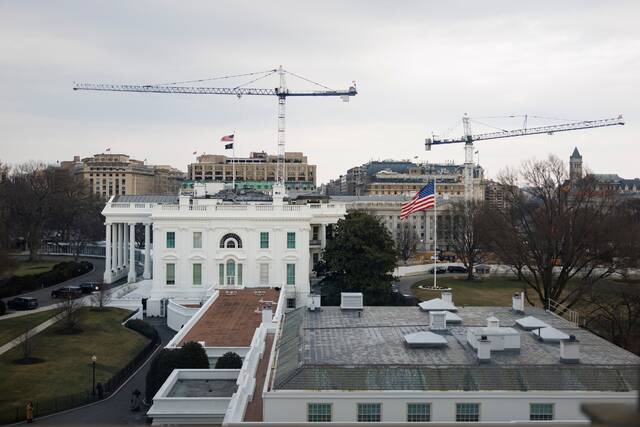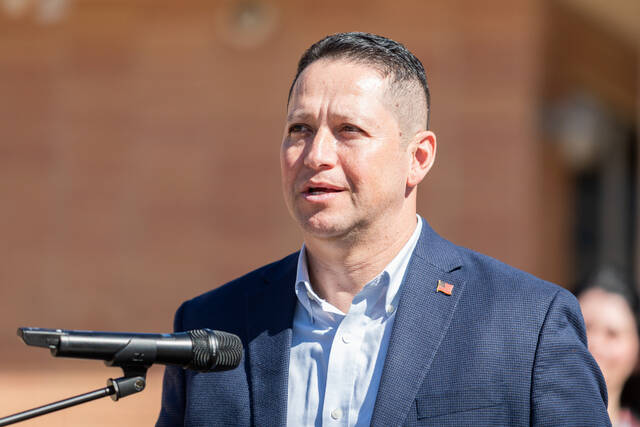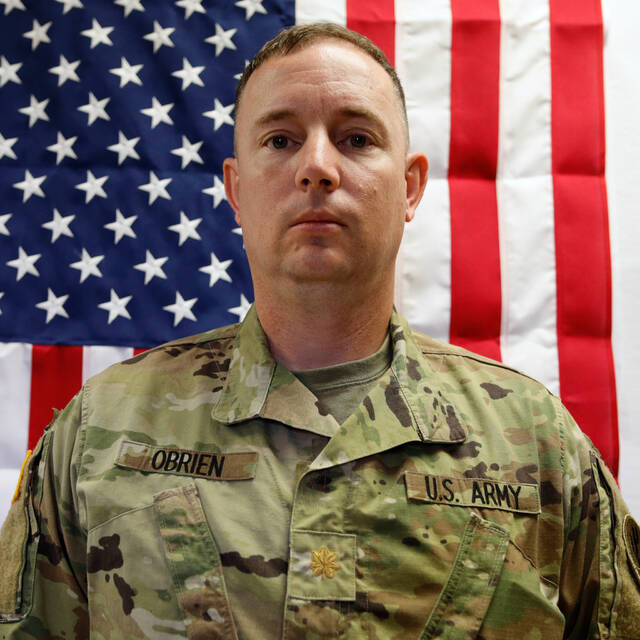TIJUANA, Mexico — The Perla family of El Salvador has slipped into a daily rhythm in Mexico while they wait for the U.S. to decide whether to grant them asylum.
A modest home has replaced the tent they lived in at a migrant shelter. Their 7- and 5-year-old boys are in their second year of public school, and their third son is about to celebrate his second birthday in Tijuana.
They were among the first migrants sent back to Mexico under a Trump administration policy that dramatically reshaped the scene at the U.S.-Mexico border by returning migrants to Mexico to wait out their U.S. asylum process. The practice initially targeted Central Americans but has expanded to other nationalities, excluding Mexicans, who are exempt. The Homeland Security Department said Wednesday that it started making Brazilians wait in Mexico.
Today, a year after the policy began, many other migrants have given up and gone back to the home countries they fled. Others, like the Perlas, became entrenched in Mexican life. The system known as the Migrant Protection Protocols helped change Washington’s relationship with Mexico and made the neighbor a key ally in President Donald Trump’s efforts to turn away a surge of asylum seekers.
The Perlas are faring better than most of the roughly 60,000 asylum-seekers, many of whom live in fear of being robbed, assaulted, raped or killed. Human Rights First, a group critical of the policy, has documented 816 public reports of violent crimes against those who were returned to Mexico. Late last year, the body of a Salvadoran father of two was found dismembered in Tijuana. A Salvadoran woman was kidnapped into prostitution in Ciudad Juarez.
Rapid expansion of the policy was key to a June agreement between the U.S. and Mexico that led Trump to suspend his threat of tariff increases. The Republican president said at the time that Mexico was doing more than Democrats to address illegal immigration.
American officials praised President Andres Manuel Lopez Obrador’s government last week after security forces repelled a caravan of Honduran migrants on Mexico’s southern border with Guatemala.
“Mexico continues to be a true partner in addressing this regional crisis,” Mark Morgan, acting commissioner of U.S. Customs and Border Protection, said on Twitter.
U.S. border authorities say the policy has contributed to a sharp drop in illegal crossings, though legal challenges could modify or even block it. Immigration judges hear cases in San Diego and El Paso, Texas, while other asylum-seekers report to tent courts in the Texas cities of Laredo and Brownsville, where they are connected to judges by video.
This month, judges in El Paso began hearing cases of people who were returned to Mexico through Nogales, Arizona, the last major corridor for illegal crossings where the policy hadn’t been adopted. This has forced migrants to traverse dangerous sections of Mexico and travel hundreds of miles to make court appearances.
Richard Boren, a teacher, accompanied two Guatemalan women and their four children, ages 4 to 16, across an international bridge to their El Paso hearing. The Guatemalans traveled 13 hours by bus from the Arizona border.
“I was really worried about them,” said Boren, 62, who met them after they were returned to Mexico through Arizona and reconnected with them for their first hearing.
Of nearly 30,000 cases decided through December, only 187, or fewer than 1%, of asylum-seekers sent back to Mexico won their cases, according to Syracuse University’s Transactional Records Access Clearinghouse. Lack of legal representation helps explain why. Fewer than 5% have lawyers.
Juan Carlos Perla, 37, said all five legal-services agencies that U.S. authorities say provide free representation in San Diego declined to represent him. Many attorneys refuse to represent clients in Mexico.
The Perlas abandoned their small bakery in El Salvador’s capital for Mexico in December 2018, arriving during a small window when the Mexican government issued one-year humanitarian visas with permission to work. The family told U.S. immigration authorities that they could not pay extortion fees to gangs in San Salvador.
“We were told that if we did not pay the last two months, the next time they would come to our house not to beat us but to kill us,” Ruth Aracely Monroy, 26, Perla’s partner and mother to their children, told U.S. officials, according to a transcript. “We left to save our lives.”
After bouncing around migrant shelters in Tijuana, they found a rental house for the equivalent of $65 a month an hour’s drive from downtown, where factories on the city’s east side give way to dairy farms and hillsides dotted with olive trees. The older boys walk one block to school in a densely packed neighborhood of concrete-block homes with satellite dishes on the roofs.
Perla is grateful to be in Mexico, but grinding fear about the future has taken its toll on his health. “I am the driving force that keeps them from having to suffer from hunger,” he says.
Monroy’s sister, brother-in-law and their children fled El Salvador and became neighbors in June. Their first court date was in December in San Diego.
Perla earned enough at a factory that makes wood pallets to pay monthly rent with barely a week’s work, but he lost his job when his work permit expired. While he waits on a renewal, he scrapes by as a street vendor.
The family appears to face long odds of winning asylum, especially without a lawyer. The grant rate for Salvadoran asylum-seekers is 18%, and cases involving gang violence can be among the most difficult.
The family plans to take its chances and if they lose, try to return to Tijuana to live. Their sixth, and possibly final, hearing in San Diego is scheduled for March 26.
“Mexico has been very kind,” Perla said.


